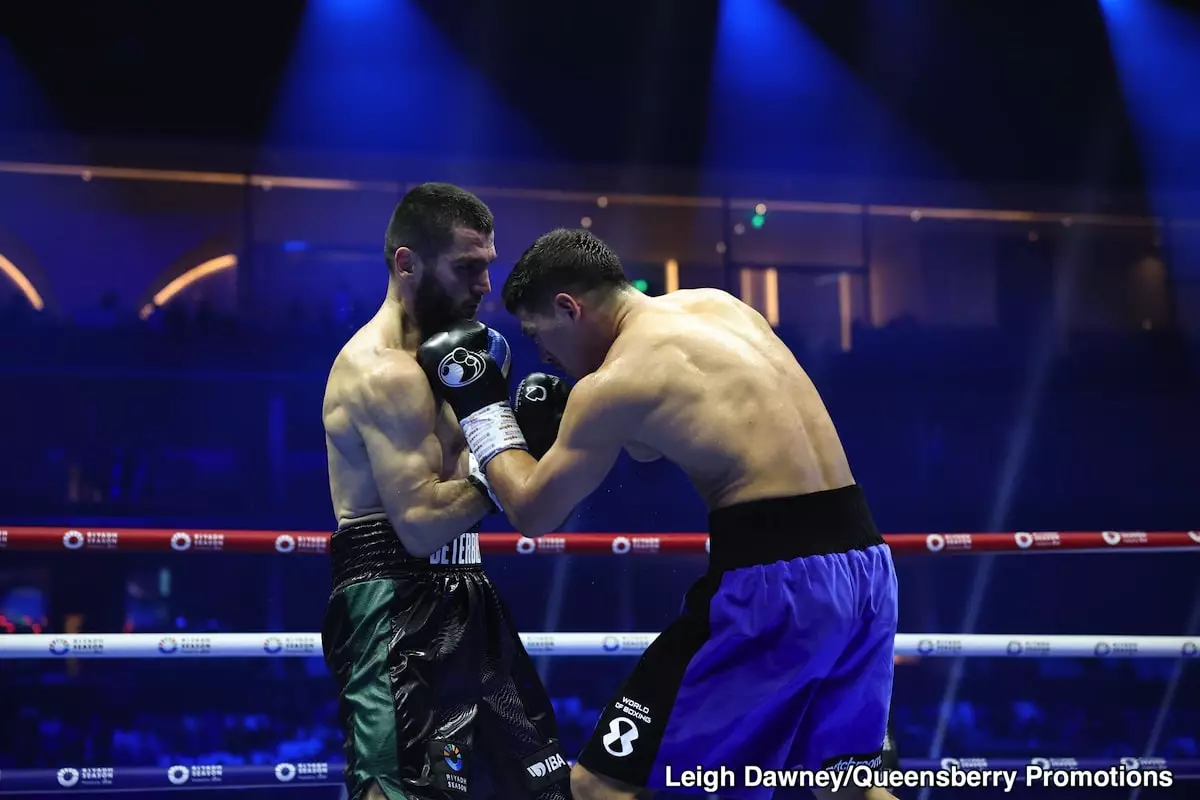The highly anticipated showdown between Artur Beterbiev and Dmitry Bivol has sparked extensive discussion in boxing circles, particularly following Beterbiev’s unanimous decision victory at the Kingdom Arena in Riyadh. This bout, filled with tactical nuances and pivotal moments, showcased not just the fighters’ physical capabilities, but also the psychological and strategic elements inherent in top-level boxing. Analyzing the fight reveals critical insights, not only about each boxer’s performance but also about future implications for their careers and the light heavyweight division.
Artur Beterbiev, known for his ferocious punching power and aggressiveness, did not immediately impose his will in the early rounds. Instead, he appeared to be in somewhat of a chess match with Bivol, absorbing a multitude of jabs and counter punches that defined the first five rounds. This slow start raises crucial questions regarding Beterbiev’s initial game plan. Was he deliberately pacing himself, or did he struggle to adapt to Bivol’s unorthodox style? These first few rounds played a significant role in establishing Bivol’s confidence and setting the tone of the fight, underscoring how vital early momentum can be in boxing.
However, things took a turn in the sixth round. Beterbiev seemed to shake off the cobwebs and started to fight with more assertiveness, targeting Bivol’s weaknesses effectively. This transition from a cautious approach to a more aggressive style marked a pivotal moment in the fight. The change in tone not only altered Bivol’s strategy but also the physical dynamics of the bout, as he found himself on the defensive, something that was not characteristic of his early-round performance.
The seventh round encapsulated the essence of the fight’s ebb and flow. In a bold attempt to regain momentum, Bivol unleashed a flurry of punches, landing nine consecutive shots on Beterbiev. While this burst of activity seemed to signal a turning point for Bivol, it ultimately showcased a vulnerability rather than a strength. Beterbiev’s capacity to absorb blows and retaliate sharply not only illustrated his toughness but also depicted Bivol’s tactical errors—namely, the risk of overcommitting without adequate defense.
Beterbiev’s counterattack during this round was not merely a physical response; it was indicative of his psychological fortitude. He appeared to thrive under pressure, capitalizing on Bivol’s momentary lapse in judgment. As Bivol visibly wilted under the barrage of Beterbiev’s punches, the illustration of power turning the tide could not have been more profound. The round not only swayed the judges but also likely impacted the fighters’ mental states as the fight progressed.
Following the fight, Bivol’s camp expressed dissatisfaction with the outcome, notably planning to file a protest regarding one of the judges’ scoring. However, this response underscores a larger issue common in boxing: the inability to accept defeat gracefully. Bivol’s loss is not merely a statistic; it reflects the need for a fundamental reassessment of his approach in the ring. His manager’s insistence on contesting the decision speaks more to emotional responses than rational analysis of the fight.
If Bivol is to stage a comeback, particularly in a potential rematch, he must address the shortcomings displayed in this bout. Experts suggest an imperative for Bivol to implement a more aggressive strategy while maintaining his defensive capabilities. His previous success against other fighters relied heavily on out-boxing them, which unfortunately did not translate well against the relentless style of Beterbiev.
As for Beterbiev, his impressive record now stands at 21-0 with 20 KOs, positioning him as a formidable champion in the light heavyweight class. The prospect of a rematch looms, but what style adjustments Bivol can muster remain to be seen. The global audience is undoubtedly eager to witness how this rivalry unfolds, as their contrasting styles enrich the division’s competitive landscape.
The Beterbiev-Bivol fight serves as a reminder of the intricacies of boxing—a sport where tactical brilliance, psychological warfare, and sheer physical prowess all collide. As fans look forward to the possibility of a rematch, both athletes stand at a crossroads that could define their careers and shape the future narrative of the light heavyweight division.


Leave a Reply